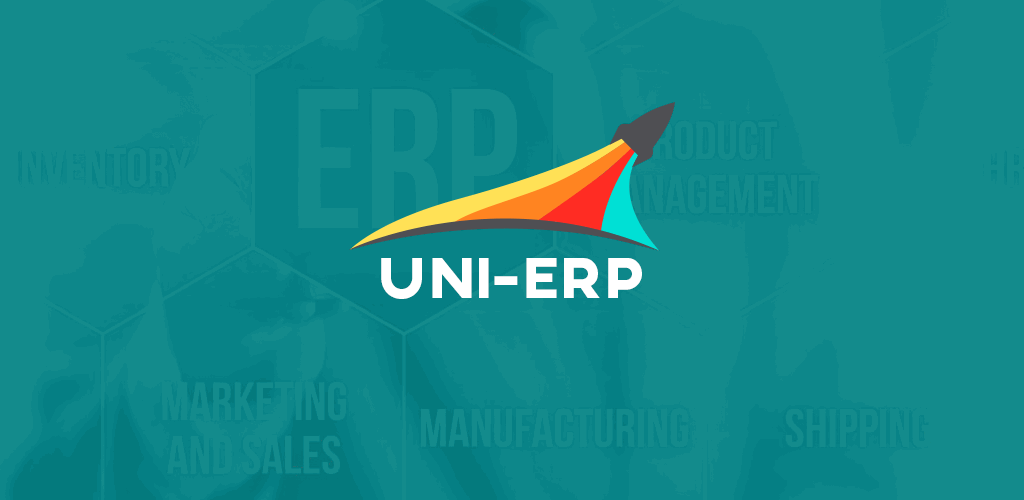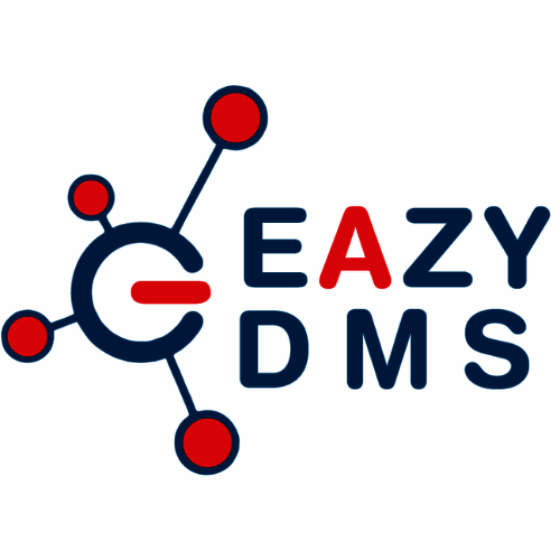What Is Dealer Management System?
The Dealer Management System, or DMS, is a software program created to automate and optimize a number of dealership operations with the ultimate goal of raising productivity, increasing efficiency, and boosting overall profitability. Dealerships can use it as a one-stop platform to handle all of their daily tasks, including accounting, customer relations, inventory, and sales.
By offering tools for lead management, customer management, and sales monitoring, a dealer management system assists dealerships in streamlining their sales procedures. It enables dealers to track client information and preferences by capturing and storing consumer data and interactions in a single central database. This feature aids dealers in developing more individualized marketing plans and stronger client relationships.
Additionally, a DMS provides sophisticated inventory management features that let dealerships keep tabs on sales, control reordering, and check car inventory levels. With this tool, dealers may maximize revenues, prevent stockouts or overstocks, and stay current with their inventory. A DMS can also assist dealerships in centrally managing sales, finance, and documentation, which lowers the possibility of mistakes and delays.
In order to give dealerships a complete and integrated solution, a dealer management system also interfaces with other crucial systems, like marketing tools, accounting and finance, and service scheduling. Dealers save time and effort since this integration removes the need for manual data entry and lowers the possibility of errors.
Dealerships can learn more about their business success with the use of analytics and reporting features that certain sophisticated DMS solutions provide. Dealers may spot trends and take well-informed decisions to promote growth and profitability by monitoring crucial indicators like sales, inventory, and customer information.
What Are The Recent Trends In Dealer Management System?
The needs of dealerships are always changing along with the automobile sector. Dealerships are now depending on cutting-edge technological solutions like Dealer Management Systems (DMS) to stay ahead of the competition and streamline their operations. These systems have developed from simple tools for managing inventory and sales to all-inclusive platforms that address every facet of dealership operations. The following are a few current developments in dealer management systems:
1. Cloud-Based Solutions: Cloud-based DMS solutions are becoming more and more popular as remote work and the demand for real-time data expand. By removing the need for on-premise servers and lowering infrastructure expenses, these solutions offer convenient access to data at any time and from any location.
2. Interaction With Third-Party Apps: APIs included in contemporary DMS solutions enable smooth interaction with third-party apps, such as marketing, accounting, and CRM software. Better decision-making results from dealerships being able to centralize their data and get rid of data silos.
3. The Capabilities Of Machine Learning (ML) And Artificial Intelligence (AI): DMS is not an exception to how these technologies are transforming the automobile sector. To increase dealership productivity and profitability, these cutting-edge technology can evaluate consumer data, forecast sales patterns, and offer tailored insights.
4. Mobility: Dealerships are increasingly in need of mobile-friendly DMS solutions. Faster and more effective sales processes result from sales personnel' mobile access to customer and inventory data.
5. Advanced Reporting And Analytics: Dealerships can now access real-time insights into their operations with the help of DMS solutions' robust reporting and analytics features. Better decision-making, more accurate forecasting, and increased profitability are made possible by this.
6. Adopting E-Commerce: As online vehicle purchases have grown in popularity, dealerships are now moving toward e-commerce, and DMS systems are keeping up with this development. These days, these systems come with capabilities like virtual test drives, online inventory management, and online payment methods. Dealer management systems are now necessary for dealerships hoping to maintain their competitiveness in the rapidly changing automotive sector as a result of these recent trends. To satisfy your dealership's present and future needs, it's critical to search for a DMS solution that provides these cutting-edge features.
Benefits Of Using Dealer Management System
A Dealer Management System (DMS) is a software program created to automate and optimize a number of dealership operations, such as accounting, sales, inventory control, and customer relationship management. Having a successful and efficient DMS is essential for dealerships to remain competitive in the fast-paced automotive business of today.
The following are some main advantages of utilizing a DMS:
1. Centralized Data Management: By acting as a single location for all dealership data, a DMS helps to cut down on inconsistencies and duplication. This guarantees current and accurate information, which facilitates the process of making well-informed business decisions.
2. Better Inventory Control: Dealerships can monitor and control their inventory in real-time, including vehicle specifications, pricing, availability, and age, by using a DMS. Better profitability results from preventing vehicle overstocking or understocking.
3. Simplified Sales Procedures: A DMS gives salespeople an easy-to-use, integrated platform to manage leads, generate quotes, and monitor sales results. Better client happiness, faster response times, and higher sales efficiency result from this.
4. Improved Client Experience: Dealerships may keep a centralized database of client data, including preferences, service logs, and purchase histories, by using a DMS. This makes it possible for them to offer seamless, customized consumer experiences, which boosts loyalty and retention.
5. Integrated Accounting: A DMS does not require separate accounting software because it has integrated accounting functionality. In addition to saving time, this lowers the possibility of financial reporting errors.
6. Improved Compliance: It can be difficult for dealerships to maintain compliance with constantly shifting regulatory standards. By automating compliance procedures and guaranteeing adherence to rules and regulations, a DMS can assist.
7. Cost Savings: A DMS can help dealerships save time and money over time by optimizing procedures and lowering manual labor. Additionally, it lowers the possibility of expensive mistakes, which boosts profitability.
Important Factors To Consider While Purchasing Dealer Management System?
A number of variables should be taken into account when considering to buy a Dealer Management System (DMS) in order to make an informed and advantageous choice for your company. A dealership management system (DMS) is a software program that gives dealerships a complete platform to handle many parts of their business, including inventory, sales, and customer relations. The following are some crucial considerations while buying a DMS:
1. Scalability And Adaptability: Your DMS must be flexible enough to evolve with your dealership's demands. It should be able to adapt to new product lines, higher sales volumes, and evolving business procedures without necessitating expensive changes or major updates.
2. Integration Capabilities: Your DMS must be able to easily interact with other software and systems that your dealership uses in today's technologically advanced world. This covers, among other things, accounting software, inventory management, and CRM. Capabilities for integration guarantee a more efficient use of resources and a more seamless workflow.
3. Mobile Accessibility: For contemporary dealerships, having access to real-time data is essential. To manage operations and access vital information from any location at any time, look for a DMS that has a mobile application or a responsive online design.
4. User-Friendly Interface: To guarantee that your dealership employees can effectively use the DMS's functionality and navigate it, a user-friendly interface is essential. To gain a sense of the system and determine whether it suits the needs of your team, think about setting up a demo or trial period.
5. Extensive Reporting: A strong reporting and analytics tool should be included of the DMS you select. This will give you important information about how well your dealership is performing and assist you in making wise business decisions.
6. Security And Backup: Since your DMS will include sensitive data, including financial records and client information, security and backup features are essential. Make sure the DMS has a solid backup and disaster recovery plan in place, as well as cutting-edge security features.
7. Customer Support: Carefully examine the vendor's customer support offerings when contemplating a DMS. Seek out a committed account manager and round-the-clock technical assistance who can help you with any problems that may come up. You can make an informed choice when buying a Dealer Management System if you keep these things in mind. Don't forget to carefully consider and contrast several DMS choices to determine which one best suits the unique demands and specifications of your dealership.
What Are The Key Features To Look For In Dealer Management System?
For every dealership hoping to effectively manage their daily operations, a Dealer Management System (DMS) is a necessary tool. It boosts profitability, enhances customer service, and streamlines procedures. However, choosing the DMS that is perfect for your dealership can be difficult with so many options on the market. Here are the main characteristics you should search for in a DMS to facilitate your purchasing process:
1. Inventory Management: To track and manage your inventory levels in real-time, a DMS should include strong inventory management features. You may lower carrying costs, prevent stockouts, and make well-informed purchasing decisions thanks to this tool.
2. Customer Relationship Management (CRM): To assist you in managing your customer interactions and maintaining a relationship with them throughout the sales cycle, a good DMS should provide a full CRM application. This tool lets you target customers with tailored marketing campaigns in addition to helping you collect customer data.
3. Sales And Finance Management: A DMS ought to offer a comprehensive solution for managing sales and finances. You should be able to easily prepare financial papers, manage loan applications and approvals, and establish, track, and conclude deals.
4. Service And Repair Management: Seek out a DMS with the ability to manage repairs and services. Maintaining customer records, scheduling appointments, tracking repair orders, and streamlining service operations are all made easier with this function. Additionally, it enables you to increase client happiness and upsell services.
5. Reporting And Analytics: Making data-driven business choices requires a DMS with strong reporting and analytics capabilities. To gain a comprehensive picture of your dealership's success, look for tools like real-time data analysis, automated reporting, and configurable dashboards.
6. Mobile Access: Having a DMS that provides mobile access is crucial in the fast-paced business world of today. You can handle tasks, access important data, and maintain team communication while on the go thanks to this tool.
7. Scalability: Your company's requirements will change as your dealership expands. For your expanding operations to run smoothly, a scalable DMS is necessary. Make sure the DMS you select can expand with your company. To sum up, every dealership hoping to increase productivity and profitability needs a DMS with strong inventory management, CRM, sales and finance management, service and repair management, reporting and analytics, mobile access, and scalability features. When comparing various DMS alternatives, keep these important characteristics in mind to determine which one best suits the particular requirements of your business.
Why Do Businesses Need Dealer Management System?
A Dealer Management System (DMS) is a software program created especially to help powersports, marine, and auto businesses improve their daily operations and overall productivity. It acts as a focal point for overseeing every facet of the dealership, including financing, customer relations, sales, and inventory. Having a DMS is now essential for companies trying to stay ahead in the cutthroat industry of today.
Simplifying and enhancing inventory management is one of the main reasons companies require a DMS. Dealerships may monitor and manage stock levels more easily by using a DMS, which allows them to track their whole inventory in real-time. This lowers the possibility of overstocking or running out of popular items by guaranteeing the dealership always has the appropriate products in store.
Additionally, a DMS offers comprehensive data and analytics that can assist dealerships in making well-informed decisions regarding their inventory, including determining which items are slow-moving or best-selling. A DMS's capacity to optimize sales procedures is yet another important advantage. A DMS may drastically cut down on the time and effort needed for each transaction by automating processes like creating quotations and proposals, handling trade-ins, and handling financing.
In addition to enhancing the general customer experience, this frees up sales staff to concentrate on developing connections with clients rather than being mired in paperwork. A DMS not only manages inventory and sales but also connects with accounting and finance systems, which facilitates the management of financial transactions, expense tracking, and financial report generation.
In addition to saving time, this increases accuracy and lowers the possibility of human error. Additionally, a DMS can assist dealerships in streamlining their operations, doing away with paper-based procedures, and lowering the possibility of data entry errors. Additionally, by offering a centralized database of client data, a DMS enhances the general customer experience.
This enables the dealership to offer individualized and effective service by containing their purchase history, preferences, and service data. To keep consumers interested and devoted to the dealership, a DMS can also automatically send follow-up messages and reminders for auto maintenance.
How Much Time Is Required To Implement Dealer Management System?
The size of your company, the intricacy of your current procedures, and the particular features and customization choices you need can all affect how long it takes to establish a dealer management system. The installation procedure often takes a few weeks to many months. It is essential to have a thorough grasp of your present company processes and goals in order to guarantee a seamless and effective implementation.
This will assist you in figuring out which dealer management system features and capabilities best suit your company's requirements. The vendor will usually give you a project strategy and timeframe for the deployment process after you have selected a dealer management system that satisfies your needs. This will cover duties like testing, staff training, system integration, and data migration.
The vendor's implementation team and your company will work together during the implementation process. The success of the implementation will depend on how engaged and collaborative your team is at this point. To guarantee a smooth and effective transition, it is generally advised to allot sufficient time and resources for the implementation process.
Additionally, this will account for any unforeseen difficulties or hold-ups that might occur during the installation. In conclusion, even if there is no set time for putting a dealer management system into place, it is crucial to plan ahead and be well-prepared in order to get the most out of the process. Within a few weeks to a few months, you should have a fully functional dealer management system in place if you and the vendor work closely together and understand your company needs.
What Is The Level Of Customization Available In Dealer Management System?
An all-inclusive software program called a dealer management system aids car businesses in effectively running their daily operations. The capacity of a DMS to be tailored to the particular requirements of every dealership is one of its primary strengths.
1. User Interface: All DMS users enter the system primarily through the user interface. With a quality DMS, you may alter the interface's functionality, color design, and layout to suit your tastes. Your staff will find it easier to browse and operate the system efficiently with this adjustment, which can also enhance the user experience.
2. Business Procedures: Each dealership has distinct operational procedures of its own. You may define rules unique to your company, plan out your workflows, and set up automated triggers with a DMS that enables a high degree of customization. This will boost productivity and simplify your procedures.
3. Reports And Dashboards: Since they offer important insights into the operation of your dealership, reports and dashboards are a crucial component of a DMS. You may design and modify dashboards and reports to monitor the parameters that are significant to your dealership with a customisable DMS.
4. Integrations: Other software and systems utilized in your dealership should be able to easily interact with a DMS. This section's customization options will enable you to modify the integration to meet your particular requirements and guarantee seamless data transfer between all platforms. The advantages of personalization Purchasing a DMS with a high degree of customization can help your dealership in a number of ways.
Which Industries Can Benefit The Most From Dealer Management System?
A software program called a Dealer Management System (DMS) was created to assist companies in effectively managing their inventory, sales, and client information. For companies who work with a lot of dealers and distributors, this approach is crucial. However, it can help a variety of enterprises and is not only restricted to particular industries. The sectors that stand to gain the most from DMS and how it can help them optimize their operations will be covered in this buyer's guide.
1. Automotive Industry: One of the main industries that benefits from the Dealer Management System is the automotive sector. Car dealerships may manage their sales, inventory, and after-sales services with this software's comprehensive solution. Dealers may create reports, manage client information, maintain inventory, and expedite the sales process with DMS. Additionally, it interfaces with a number of third-party solutions, which facilitates data management and boosts dealership productivity.
2. Retail Industry: DMS has a lot to offer the retail sector as well. Businesses require a solution that can assist them in effectively managing their operations due to the evolving retail market and the increasing number of customers. Retail organizations may track sales, manage inventory, and keep an eye on consumer data with DMS. Additionally, it allows retailers to save operating expenses, enhance customer service, and streamline their supply chain.
3. Manufacturing Industry: DMS is revolutionary for manufacturing companies with numerous dealers and distributors. Manufacturers can use it to track sales, manage their distribution networks, and examine consumer information. Manufacturers may also control inventory levels, optimize their supply chain, and produce thorough reports with DMS. In the end, it improves their overall efficiency, boosts sales, and strengthens their bonds with their dealers.
4. Construction Industry: DMS has potential advantages for the construction sector as well. It assists construction organizations in tracking inventory levels, managing their fleet of equipment, and managing purchase orders. In order to help construction organizations make better decisions and enhance their overall project management, DMS also offers real-time reports and notifications on project progress, inventory levels, and expenses.
5. Agriculture Industry: Businesses in the agriculture sector can benefit greatly from DMS. Farmers and distributors can use it to measure sales, manage inventories, and keep an eye on client information. Additionally, farmers may control their prices, assess their expenses, and monitor crop yields with DMS. In the end, it assists them in making data-driven decisions and enhancing their overall farm management.
Conclusion
To sum up, selecting the best Dealer Management System (DMS) is essential to increasing your dealership's productivity and profitability. You now have a better grasp of the features and advantages that a DMS can provide after doing extensive study and giving it some thought. Before choosing, make careful to consider the particular requirements and objectives of your dealership.
When comparing various DMS options, take into account elements like customer support, ease of use, and integration capabilities. Keep in mind that purchasing a DMS is an investment in your dealership's success. A good DMS can eventually result in more growth and revenues by optimizing procedures, offering real-time data, and enhancing the general customer experience.
Finally, to make sure you are making an informed choice, don't be afraid to obtain references from existing users and demonstrations. We hope that this buyer's guide has helped you choose the best DMS for your dealership by offering insightful information. I wish you luck!






















